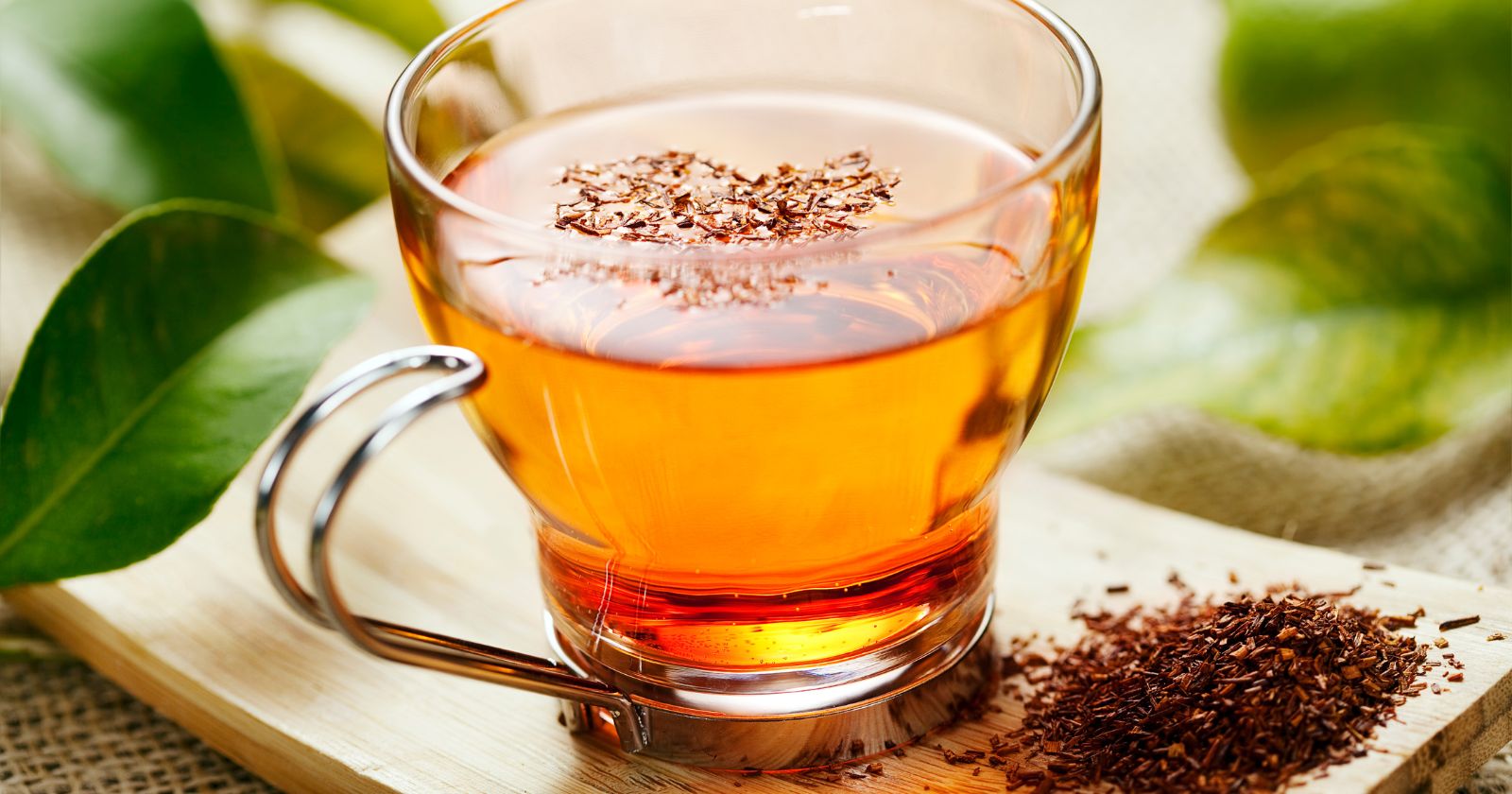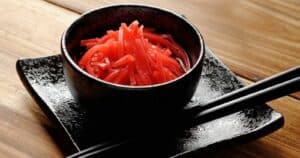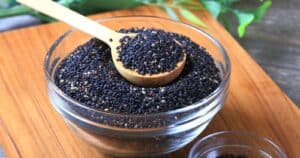Are you tired of drinking the same old tea and looking for something new? Rooibos tea, also known as “red bush” tea, may just be the answer you are looking for.
This herbal tea has benefits that can support heart health and blood pressure, making it a great addition to any daily routine.
In this article, we’ll discuss the origins of Rooibos tea, its health benefits, and how to prepare it for optimal flavor. We’ll also include tips on incorporating Rooibos tea into your daily routine so that you can reap the full benefits of this superfood.
Whether you prefer it hot or cold, you’ll find a way to love this delicious and healthy beverage. So, let’s start unlocking the power of Rooibos tea today!
The Origins of Rooibos Tea: A Brief History
Rooibos tea has a long history in South Africa. The Khoisan people used these leaves over 300 years ago for herbal remedies. Dutch settlers marketed it as a herbal alternative to tea in the 1700s.
Rooibos tea was invented by Benjamin Ginsberg in 1904, who developed the curing process still used today.
Rooibos tea is made from the Aspalathus Linearis plant, which grows in South Africa. It is a caffeine-free tea with antioxidants, making it a popular choice for health-conscious consumers.
Rooibos tea also has several benefits, such as reducing inflammation, promoting healthy digestion, and improving heart health.
The demand for rooibos tea has increased over the years, becoming a significant export for South Africa. Today, you can find rooibos tea in many different flavors and blends, making it a versatile beverage that can be enjoyed both hot and cold.
In addition, rooibos tea is becoming increasingly popular in the cosmetic industry and is used in various skin care products.
Health Benefits of Rooibos Tea: Supporting Heart Health and Blood Pressure
Drinking rooibos tea can support heart health and lower blood pressure due to its inhibitory effect on the angiotensin-converting enzyme (ACE) and nitric oxide.
Rooibos tea also contains quercetin, a potent antioxidant that reduces chronic inflammation and helps prevent life-threatening diseases.
Rooibos tea is known to have numerous health benefits, with research showing that it supports heart health and promotes healthy blood pressure levels.
Notably, drinking rooibos tea can lower blood pressure by inhibiting the angiotensin-converting enzyme (ACE) and nitric oxide, which regulate the volume of fluids in the body.
Additionally, rooibos tea is rich in flavonoids, including aspalathin and nothofagin, which have been shown to lower LDL (bad) cholesterol and raise HDL (good) cholesterol, promoting healthy heart function.
The super-antioxidant compound quercetin in rooibos tea supports heart health by reducing chronic inflammation that can lead to heart diseases.
Inflammation occurs when the body’s natural defense system overreacts to perceived threats, leading to tissue damage that can cause long-term damage.
Quercetin helps reduce inflammation by inhibiting the production and release of inflammatory mediators, such as cytokines, from immune cells.
As a result, quercetin can reduce the risk of developing heart disease and other life-threatening conditions.
Regular consumption of rooibos tea can significantly reduce the risk of developing heart disease compared to traditional tea.
Rooibos tea contains no caffeine and is rich in essential minerals and antioxidants that can help prevent cardiovascular disease.
Drinking rooibos tea can help increase your intake of antioxidants, which are necessary for fighting free radicals that cause oxidative stress and damage to the heart and blood vessels.
How to Prepare Rooibos Tea: Hot and Iced Options
For hot rooibos tea, boil water and warm up the teapot. Discard the water to warm the teapot and add three teaspoons of rooibos tea. Pour 16 ounces of water at 208°F over it and steep for 5-7 minutes.
To make iced rooibos tea, use about 10 grams of leaves per ½ gallon of water and let it steep in the sun for a few hours. Refrigerate when brewed.
Rooibos tea is versatile and can be prepared in a variety of ways. Here are some other ideas to try:
- Masala chai rooibos: Add spices like cinnamon, ginger, cloves, and cardamom to the tea when steeping.
- Mint rooibos: Add fresh mint leaves to the teapot when steeping.
- Rooibos latte: Brew the tea using milk instead of water and add sweetener to taste.
- Citrus rooibos: Add lemon or orange zest to the tea when steeping.
Rooibos tea is a delicious, healthy alternative to traditional teas. Its unique flavor and versatility make it a great addition to any beverage repertoire.
Adding Rooibos Tea Into Your Daily Routine: Tips and Ideas
Are you looking for a healthy and tasty addition to your daily routine? Look no further than rooibos tea! Drinking a cup in the morning and at night can benefit your health and well-being.
Here are some tips and ideas to help you incorporate rooibos tea into your daily routine:
- Replace your morning coffee with rooibos tea. The rich, full-bodied flavor of this tea will give you a similar energy boost to coffee without the adverse effects of caffeine.
- Make drinking tea a daily ritual of self-care. Take a few moments to unwind, breathe and refocus while enjoying a warm cup of rooibos tea.
- Create a routine around drinking tea. Whether first thing in the morning or before bed, making drinking tea a consistent part of your daily routine can make it easier to incorporate into your life.
Rooibos Tea Varieties: Flavors and Blends to Try
Rooibos tea has wide varieties and flavors, making it a perfect choice for tea lovers who want to try something new.
Depending on the oxidation level, red rooibos has a smoky, sweet, or woody taste. Green rooibos, on the other hand, has a fresh and verdant taste.
Aside from the essential flavors, rooibos tea is available in different blends with unique and exciting twists.
Here are some popular flavors and combinations that you should try:
- Red Bush Chai: a blend of rooibos with spices like cinnamon, ginger, cardamom, and cloves. It has a warm and spicy taste.
- Caribbean Colada: a blend of rooibos with pineapple and coconut flakes. It has a tropical and refreshing taste.
- Herbal Pinacolada: a rooibos blend with coconut, pineapple, and papaya. It has a sweet and fruity taste that is perfect for summer.
- Green Berry Delight: a blend of green rooibos with strawberries, raspberries, and blueberries. It has a sweet and tangy taste with a refreshing finish.
- Phoenix Mills: a blend of rooibos with peppermint and chamomile. It has a refreshing and calming taste.
- Blood Orange: a blend of rooibos with blood orange and hibiscus. It has a sweet and tangy taste with a slightly bitter aftertaste.
- Pumpkin
Spice Herbal: a rooibos blend with pumpkinspice flavors like cinnamon, nutmeg, and cloves. It has a warm and cozy taste that is perfect for fall.
Aside from these blends, you can also find rooibos tea with other popular flavors like mint, vanilla, chamomile, and caramel.
The possibilities are endless; you can always mix and match different flavors to create your unique blend.
Rooibos Tea Substitute
Are you looking for an alternative to Rooibos tea? Honeybush tea from South Africa has a similar taste but a sweeter flavor.
Herbal options like chamomile or peppermint tea, reishi mushroom tea, and golden milk can also be substituted.
However, Rooibos tea has unique health benefits and should only be replaced partially.
Honeybush Tea
Honeybush tea is the most similar alternative to Rooibos tea because they are native to South Africa. Like Rooibos tea, honeybush is naturally caffeine-free and has a mild flavor.
Honeybush tea is sweeter than Rooibos tea because it contains more natural sugars, making it an excellent substitute for those who love a sweet taste in their tea.
Herbal teas
Herbal teas like chamomile or peppermint can be substituted if you want a caffeine-free option. Chamomile tea is known for its calming effects and is ideal for bedtime routines.
Peppermint tea is perfect for digestion and can be consumed after meals to soothe an upset stomach.
On the other hand, Reishi mushroom tea has been used in traditional Chinese medicine for centuries due to its ability to boost immunity and improve overall health.
Golden Milk
Golden milk is a caffeine-free option that combines turmeric, ginger, and other spices that calm the body and mind. It also has anti-inflammatory properties that can aid in muscle recovery and digestion.
Although all these teas have health benefits, Rooibos tea is unique due to its high antioxidants and anti-inflammatory properties, making it a perfect alternative to traditional teas.





